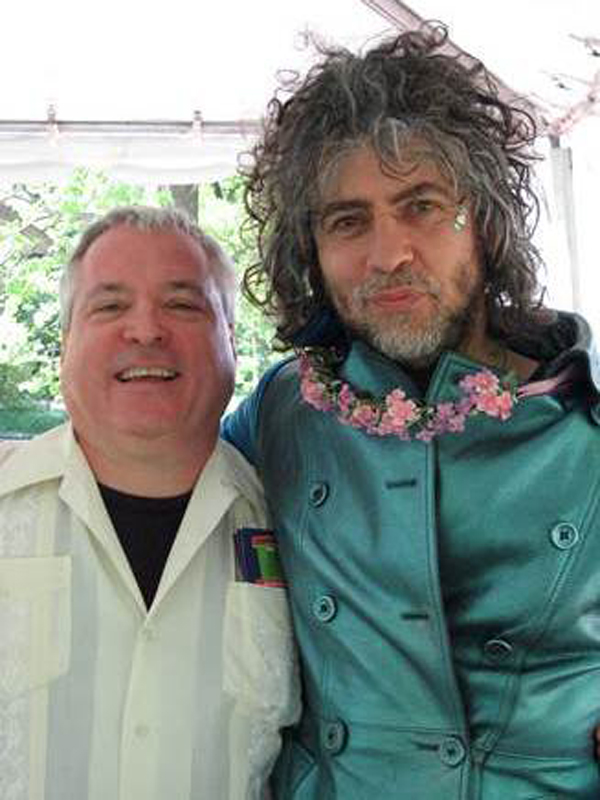Download
Popular Posts
-
Gibboni and the Gibbon: At Stereo Exchange’s annual Spring High-End Audio Show, Roger Gibboni (left) of Rogers High Fidelity debu...
-
Hey, we were in earthquake country, the land from which Carole King may have received inspiration to write, "I Feel the Earth Move...
-
A reader once noted that I tend to stick with the same reference gear longer than most reviewers. In addition to Audience's Au24e i...
-
The Enigmacoustics company from Irvine in California has become renowned for the self-energized, horn-loaded Sopranino electrostatic su...
-
Today, Sony announced an end to production on all MiniDisc players. In a few years, MiniDisc production will cease as well. I know w...
-
The name sounds perfect . It fits neatly next to those of Messrs. Leak, Sugden, Walker , Grant, Lumley, and others of Britain's...
-
Silicon Valley–based Velodyne was founded in 1983 to develop a range of subwoofers that used servo-control to reduce non-linear distorti...
-
I've heard a lot of great audio components over the years, but even in that steady stream of excellence, a few have stood out as so...
-
I've long kept an eye on Michael Creek's loudspeakers (Epos) and electronics (Creek). He's always moving forward, with eith...
-
You don't need me to tell you that listening habits are changing. Although those who predict that the end of our beloved home stere...
Market information
Blog Archive
-
▼
2013
(510)
-
▼
July
(24)
- Bill Frisell’s Big Sur
- Wilson Audiophile Recordings Return
- Capital Audiofest, Wrap-Up
- Capital Audiofest, Day One
- Pre-road downs
- Astell&Kern AK100 portable media player
- I'd Love to Turn You On
- Home Theater Merges with Sound & Vision
- 2013 Recommended Components
- The Good Rats' Peppi Marchello dies at 68
- Emily Tries but Misunderstands
- Amar G. Bose, PhD: 1929–2013
- Wayne Coyne
- Wadia 121decoding Computer D/A processor
- Recording of February 1984: Beethoven/Enescu Violi...
- CAD Audio MH510 Headphone Sweepstakes
- The Big Dream & “The Vastness of the Small Corral”
- Music in the Round #61
- Video: Julia Holter's "In the Green Wild"
- (Mostly) Analog Adventures By the Bay
- Yves-Bernard André: Kind of Blue
- CE Week: Headphones Galore, A DAC, A Small Hi-Fi, ...
- Pioneer SP-BS22-LR loudspeaker
- Listening #127
-
▼
July
(24)
Wayne Coyne

Always an entertaining and often enlightening conversationalist, Coyne was decked out in a blue metallic leather suit when we spoke. Forever obsessed with all things interplanetary, he had a splay of Ziggy Stardust–like spangles in an arc below one eye and each of his fingernails was intricately painted in a different color scheme. There truly is no one in music, or on planet earth for that matter, like Wayne Coyne. Back on the wagon, Stephen exercised while we spoke. “I don’t think it’s dark,” Coyne said about the new record. “It’s ambiguous and kind of cold and it’s full of anxiety you know. I think it’s purposely not singing about giraffes.
“We wanted to be very focused and not be hodgepodge and all over the place. We decided it would be nine songs. Some of our favorite records are short records. Dark Side of the Moon. Even something like Miles Davis’ Sketches of Spain. They’re a great listen but they’re not an hour and half long. They’re this little arc. And we had done Heady Fwends which is a lot of music and previous to that Embryonic (2009) as a double record. It was a lot a lot of music and I think we were like, we don’t want to do that and so it seemed like we could do this type of music, if we were only gonna have to go this little arc. And that was appealing to us as artists.”
So what’s the process? How did the record come together?
“We go into this music and we’re discovering the music that we’re making, and on the way up there we don’t know what it is, and suddenly we discover it. And there’s this short period of time after we discover it that we really find our way. You have all these things you can pick from, but you’re really just listening and you kind of secretly go, `Ohh, I’m drawn to this' and you start to go that way. And before you know it you’re been working for a couple of weeks and you go `Wow, we really have a weird little sound here.’"
Many reviewers have mentioned how the oceans of electronics and gloomy, ethereal vibe of The Terror’s owe a debt to Krautrock. “There’s some of the emotion [of Krautrock], some bleakness, something triumphant about that, not quite finished and that’s such a truism of what life is. You think you know, but you don’t really know. There’s something ambiguous. There’s no way if you’re being honest that the music that you like and the music that you make aren’t going to sound alike. You can’t really know what it is and I think that’s what appeals to us the most.”
Tunes like “Try to Explain,” where by the end Coyne is emitting crying sounds or “You Are Alone” where he again ends the song with more ghostly, mournful yawls seem to be cutting close to the bone. Is this the Lips therapy record? Again, is this the aural portrait of the Lip's unsetting personal situations?
“I can’t help but think that some of it is because the things that you sing about are the things that you’re probably in your mind wondering about. Rarely do you sing about certainties. But I don’t think they are really that connected. We play the song “Try to Explain” like it’s this powerful thing, but it’s just a song. I would never, if I was aware of it, sing a song that would go so deeply into other people’s lives. So we weren’t doing that at the time, no.
“There’s a lot that this record could hint at. Well, here’s a truth. We talk about love and pain and we don’t control the controls. And I can see how all that…but it’s really not like that. You don’t get to know. There was despairing going on, but I don’t think the music sounds despairing.”

Source : stereophile[dot]com

- Không có bài viết liên quan

Comments[ 0 ]
Post a Comment